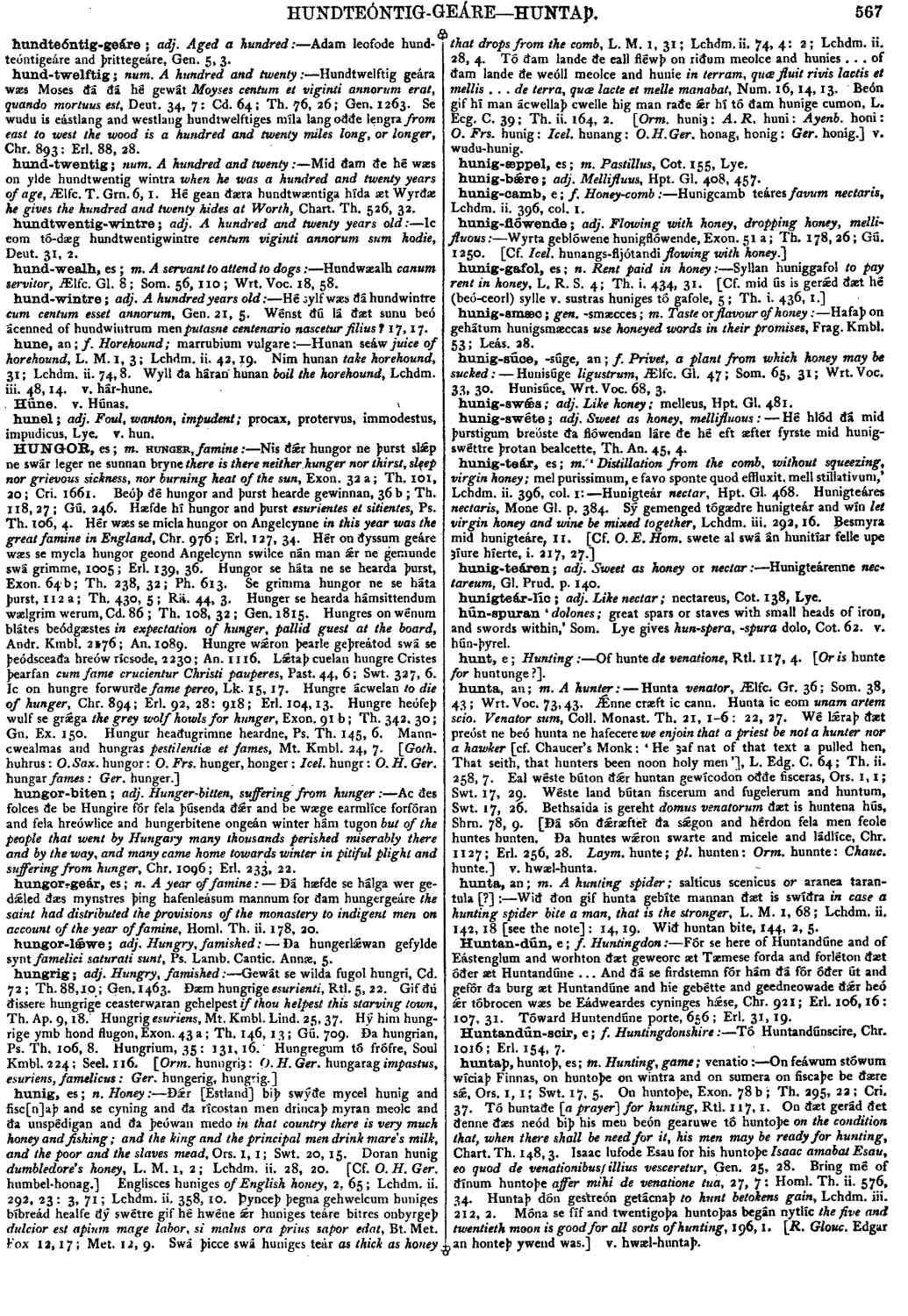hunta
- noun [ masculine ]
-
Hunta
venator,
- Ælfc. Gr. 36 ;
- Som. 38, 43 ;
- Wrt. Voc. 73, 43.
-
Ǽnne cræft ic cann. Hunta ic eom
unam artem scio. Venator sum,
- Coll. Monast. Th. 21, 1-6: 22, 27.
-
Wé lǽraþ ðæt preóst ne beó hunta ne hafecere
we enjoin that a priest be not a hunter nor a hawker
- [cf.
- Chaucer's Monk : 'He ȝaf nat of that text a pulled hen, That seith, that hunters been noon holy men'],
- L. Edg. C. 64 ;
- Th. ii. 258, 7.
-
Eal wéste búton ðǽr huntan gewícodon oððe fisceras,
- Ors. 1, 1 ;
- Swt. 17, 29.
-
Wéste land bútan fiscerum and fugelerum and huntum,
- Swt. 17, 26.
-
Bethsaida is gereht
domus venatorum
ðæt is huntena hús,
- Shrn. 78, 9.
-
Ðá són ðǽræfter ða sǽgon and hérdon fela men feole huntes hunten. Ða huntes wǽron swarte and micele and ládlíce,
- Chr. 1127 ;
- Erl. 256, 28.
Bosworth, Joseph. “hunta.” In An Anglo-Saxon Dictionary Online, edited by Thomas Northcote Toller, Christ Sean, and Ondřej Tichy. Prague: Faculty of Arts, Charles University, 2014. https://bosworthtoller.com/19980.
Checked: 1